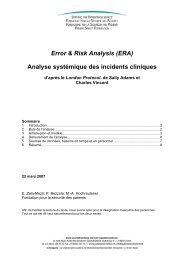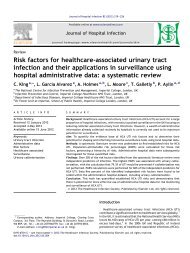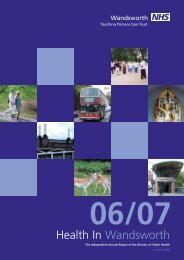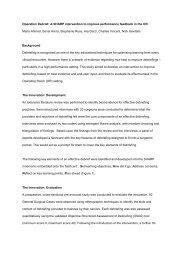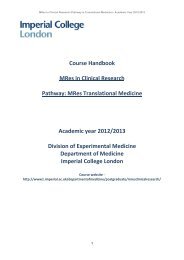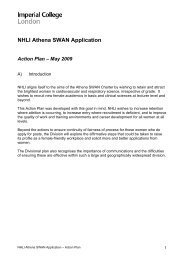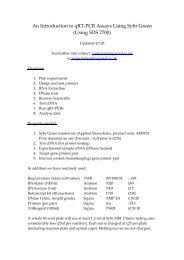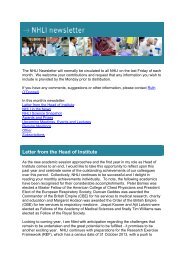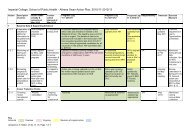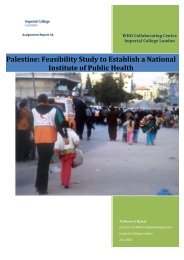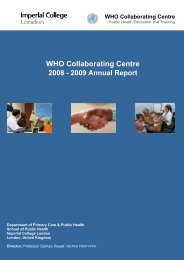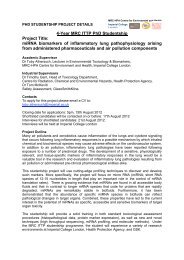QOF Plus Year 1 - Imperial College London
QOF Plus Year 1 - Imperial College London
QOF Plus Year 1 - Imperial College London
You also want an ePaper? Increase the reach of your titles
YUMPU automatically turns print PDFs into web optimized ePapers that Google loves.
Appendix 5Methodology for the development of thetraining and support packageDevelopment of the training and support packageFinancial incentives delivered in isolation are unlikely to lead to optimal quality improvement(Oxman, 1995). For this reason, a range of interventions is being developed to support practicesparticipating in <strong>QOF</strong>+ to improve the quality of care delivered to their patients. Theseinterventions include additional educational and training activities, audit, academic detailing,enhanced IT support and development of a resource pack for practices. These interventions willincorporate both face-to-face and e·learning components through a blended learning approach.As part of the support package, a dedicated email address has been set up by the PCT for generalhelp and support required by practices with any aspect of <strong>QOF</strong>+. An additional service, titled “Askthe Specialist” has also been set up by the PCT to enable practices to access more focussed adviceabout the management of specific problems. Practices can email requests which will then bescreened and forwarded to the relevant specialists. A detailed practice training and supportneeds analysis is currently in progress and will inform further development of the <strong>QOF</strong>+ trainingand support package.Development of the training and support package for existing <strong>QOF</strong> indicators was informed byconsultation with national experts, by analysis of data on achievement for existing <strong>QOF</strong> forindividual practices (obtained through information collated from the QMAS website), and by atraining and support needs assessment conducted among all local practices through aquestionnaire which was developed by and piloted on members of the <strong>QOF</strong>+ development team.The questionnaire was developed using the principles of questionnaire design (Boynton et al.,2004).The <strong>QOF</strong>+ Development Group also identified training needs associated with the proposed newindicator areas and proposed mechanisms by which this could be addressed, which includedattendance at courses, online resources, face-to-face in-practice training and additional ITsupport. Proposed training resources were developed following consultation with relevant localexpertise (including the Hammersmith and Fulham Drug and Alcohol Team), the Royal <strong>College</strong> ofPractitioners (RCGP) and the Department of Health, and these are included in the Resource Packfor <strong>QOF</strong>+ new indicator areas which has been produced for local practices.140



